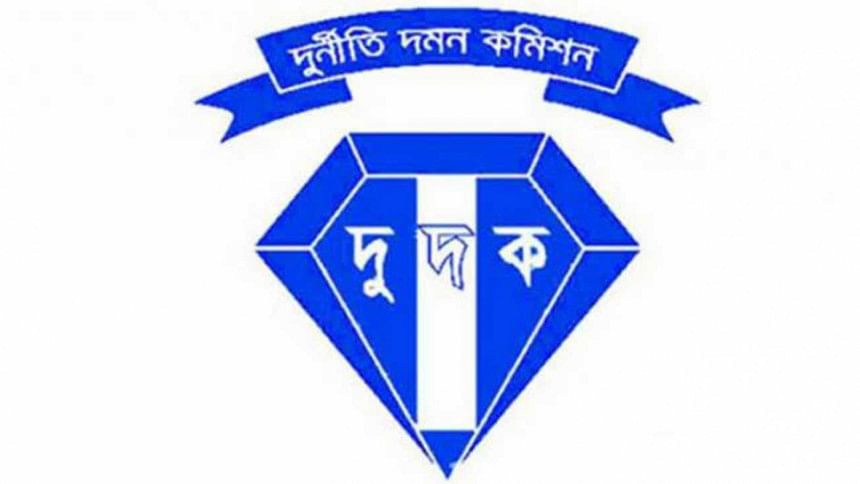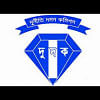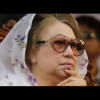Question leaks failure of state machinery

During their academic life, teenagers are introduced to perhaps their first form of corruption through question paper leaks. This is a failure of the state machinery, graft watchdog Anti Corruption Commission (ACC), said.
“Though the education ministry has made envious success [in the provision of] textbooks to students during the beginning of the year, negative discussions in the media over question leaks, the coaching business and massive use of guidebooks have marred the image of the ministry,” said the commission in a letter written to the cabinet regarding curbing corruption in the sector.
The letter, based on a year-long investigation by a two-member team led by ACC's Director Meer Joynul Abedin Shibli, pointed fingers at officers in the education board, BG Press and other government officials for incidents of question paper leaks and other irregularities like transfer and promotion of teachers.
In the six-page long letter, detailing the source of corruption, ACC made a 39-points recommendation.
Giving instances of dishonesty in the education ministry, ACC said the ministry does not settle matters as per policy but rather unnecessarily sends those matters to higher authorities causing delays.
“Through such delay, the path of corruption is created. Divisional action can be taken against these officers,” ACC recommended.
Initiatives need to be taken to dispel different irregularities in education ministry that includes procurement, unnecessary visits abroad and expenditure in the name of training, the ACC suggested.
The commission also offered its assistance to the education ministry to stop illegal use of vehicles of different projects
Regarding private universities, the commission said that they will meet the demand for higher education but there are allegations of corruption against them.
“If they [private universities] fail to meet the criteria of The Private University Act, 2010, the activities of [the] respective universities can be stopped,” said ACC.
QUESTION PAPER LEAKS
The government officers and staffs are involved in every stage of the question paper, from preparation to distribution.
Leaking of the papers by government employees is a criminal misconduct, which is a scheduled offence as per the ACC act.
However, the commission says since it is difficult to find documentary evidence of such crimes, preventive methods should be put in place.
ACC recommended employing honest and meritorious teachers in the preparation of questions, reducing the number of exam centers and keeping those in upazila towns.
Question papers should be kept in a lockbox with a double lock and opened only in the presence of the deputy commissioner, read the letter.
Since money transaction is involved in the leaks and often technology is used, cases can be filed against the perpetrators either under the money laundering or ICT act, said ACC, adding that if the government employees are found involved in such offence, the commission could file case against them for criminal breach of trust.
The commission said the textbook manuscript reaches guidebook publishers and a section of dishonest NCTB officials are involved in it. As a result, on January 1, when children get the new books for free, they also have to buy these low-standard guidebooks at a high rate.
“In this case, both NCTB authority and the ministry could take steps of strict monitoring,” said ACC.
The commission opined that contents of textbooks, especially the mathematics and science related subjects, have been reduced drastically.
“There are no examples of math problems in the textbooks of different classes. Generally, students usually solve problems following these examples. But due to the reduction, it is not possible for them to do so without the help of teachers or guidebooks,” read the letter.
REGULAR TRANSFER, E-TENDERING
The commission recommended forming a commission like Public Service Commission for the recruitment of teachers.
ACC also suggested regular transfer of teachers to stop the coaching business.
Saying that irregularities took place at the tendering process for textbook publication, ACC asked the National Curriculum and Textbook Board to follow e-tendering. “If any officials participated in the tender process, steps should be taken. To ensure a standard textbook, the supervising authorities work is needed to be monitored strictly,” read the letter.
Saying that gross corruption take places during the tender process in Education Engineering Department (EED), the commission asked the ministry to monitor the activities of EED strictly and complete tender process through e-tendering.
The letter signed by ACC's secretary Dr Md Shamsul Arefin, was sent to secretaries of the cabinet division, primary and higher education division, education ministry, chairman of national curriculum and textbook board, and chief engineer of education engineering department.

 For all latest news, follow The Daily Star's Google News channel.
For all latest news, follow The Daily Star's Google News channel. 








Comments